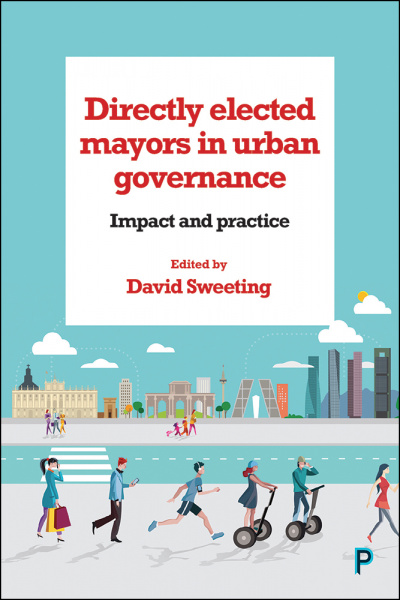Robin Hambleton
What is the nature of the choice facing the citizens of Bristol when they vote in the city governance referendum in May 2022?
To answer this question, we need to take a quick look back. In early 2012 the citizens of Bristol were invited to contemplate how they would like their city to be governed. The Localism Act 2011 required ten large cities in England, including Bristol, to hold a public referendum giving citizens a choice between two civic leadership models.
Option 1) was to retain the, then existing, leader plus cabinet model of governance. In this arrangement an existing elected councillor is chosen by the other elected councillors to be the leader, and this politician chairs a cabinet of senior councillors.
Option 2) presented a radical change. The leader of the city, described as a mayor, would be directly elected by the voters and this politician would chair the cabinet of senior councillors.
In spring 2012 there was a lively debate about the pros and cons of these two different governance options. Campaigners supporting the mayoral model claimed that a directly elected mayor would be able to champion Bristol, promote positive change and deliver bold innovations in public policies for the city. Opponents feared that a change to mayoral governance would weaken the role of elected local councillors and could lead to an over concentration of power in the hands of one individual.
What happened in 2012?
In the event, in the citywide referendum held on 3 May 2012, the citizens of Bristol decided to introduce a directly mayor model of city governance. Just over 41,000 citizens voted in favour of this change, with almost 36,000 citizens opting for retention of the existing leader plus cabinet model.
Now, ten years later, the citizens of Bristol have an important opportunity to reconsider this decision. In May 2022 they will be invited, once again, to decide how they wish to be governed, but the choice will not be the same.
Looking ahead to the referendum in May 2022
Because of legal requirements relating to referenda in the UK, Bristol citizens will again be presented with a binary choice. However, the motion, passed by Bristol City Council on 7 December 2021 setting up this second referendum, rules out the option of returning to the leader plus cabinet model that existed in Bristol in 2012.
Instead, in May 2022 citizens will be invited to choose between: 1) Continuation of the directly elected mayor model of governance (hopefully reformed to take account of concerns expressed by opponents of the model), and 2) Reversion to a committee system of governance. The committee system existed in Bristol, and in other councils across England, before the Local Government Act 2000. In this arrangement councillors serve on committees that reflect the political balance of the city council.
Research on Bristol’s mayoral model of governance
In the summer of 2012 our two local universities – University of Bristol (UoB) and University of the West of England, Bristol (UWE) – launched a research project to assess the impact of the mayoral model on the governance of the city, and several policy reports have been published – in 2013, 2015 and 2020 available here: https://bristolcivicleadership.net/our-publications/.
This research demonstrates that the mayoral model has delivered many benefits for the city, but it also shows that the model can be improved. In particular, the research has consistently suggested that the role of councillors within mayoral governance should be strengthened.
Direct election – the key issue to be decided
In his international book, Directly elected mayors in urban governance, David Sweeting, from the University of Bristol, explains how it can clarify understanding of the pros and cons of mayoral governance if attention is focussed the key feature of this model – direct election.
He explains how direct election has three consequences. First, all the citizens living in a municipality participate directly in the process of deciding who is to lead the locality. Second, the process produces a clearly identifiable, individual political leader. Third, the direct election process creates a secure term of office until the next election, or at least until the activation of a recall procedure that would enable their removal from office.
Sweeting’s analysis explains how each of these three features has advantages and disadvantages. For example, having a clear, identifiable leader can facilitate the creation of a vision for the city and it can provide a focus for accountability. However, it can also overload the individual elected as mayor.
Forthcoming report
The Bristol Civic Leadership Project team is in the process of preparing a detailed report on The Bristol Referendum 2022. This report, which thinks through the city governance options facing the city, will be published in March 2022.
Robin Hambleton is Emeritus Professor of City Leadership at the University of the West of England, Bristol. He has carried out research on city governance in many countries and his latest book is Cities and Communities Beyond COVID-19. How local leadership can change our future for the better. (Bristol: Bristol University Press, 2020). https://bristoluniversitypress.co.uk/cities-and-communities-beyond-covid-19



